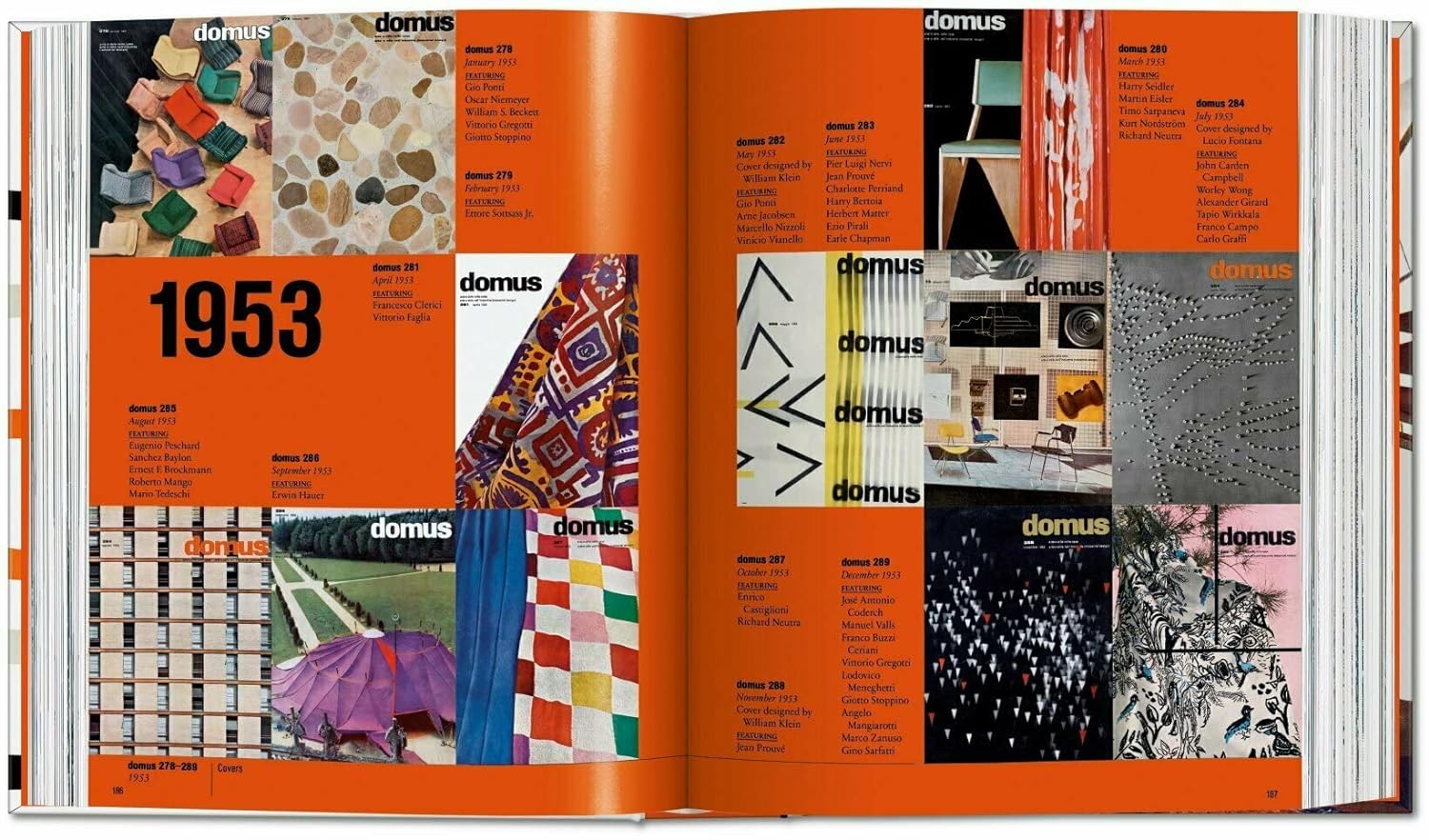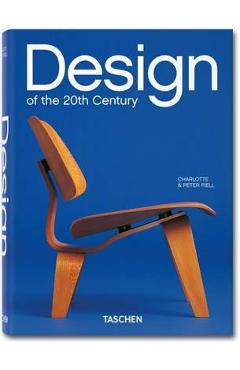Domus 1950-1959 - Fiell

Detalii Domus 1950-1959 - Fiell
Produs actualizat în urmă cu 1 lună
Descriere YEO:
Descriere magazin:
Founded in 1928 as a living diary by the great Milanese architect and designer Gio Ponti, domus has been hailed as the world\'s most influential architecture and design journal. With style and rigor, it has reported on the major themes and stylistic movements in industrial, interior, product, and structural design. This fresh reprint of domus\' 1950s coverage brings together the most important features from an era of post-war optimism. As memories of conflict receded, architecture and design sought new forms, materials, and applications, as well as increasing international dialogue. Highlights include Le Corbusier\'s design of the United Nations Building in New York; the Case Study Houses of Charles and Ray Eames; Richard Neutra in California, office machines by Olivetti, furniture by Ray and Charles Eames, ceramics and tables by Ettore Sottsass, and the Herman Miller Showroom by Alexander Girard in San Francisco. domus distilled Seven volumes spanning 1928 to 1999 Over 4,000 pages featuring influential projects by the most important designers and architects Original layouts and all covers, with captions providing navigation and context Introductory essays by renowned architects and designers Each edition comes with an appendix featuring texts translated into English, many of which were previously only available in Italian A comprehensive index in each volume listing both designers\' and manufacturers\' names

Domus 1950-1959 - Fiell - Disponibil la libris.ro
Pe YEO găsești Domus 1950-1959 - Fiell de la Fiell, în categoria Architecture.
Indiferent de nevoile tale, Domus 1950-1959 - Fiell din categoria Architecture îți poate aduce un echilibru perfect între calitate și preț, cu avantaje practice și moderne.
Preț: 198.4 Lei
Caracteristicile produsului Domus 1950-1959 - Fiell
- Brand: Fiell
- Categoria: Architecture
- Magazin: libris.ro
- Ultima actualizare: 25-10-2024 01:12:27
Comandă Domus 1950-1959 - Fiell Online, Simplu și Rapid
Prin intermediul platformei YEO, poți comanda Domus 1950-1959 - Fiell de la libris.ro rapid și în siguranță. Bucură-te de o experiență de cumpărături online optimizată și descoperă cele mai bune oferte actualizate constant.
Descriere magazin:
Founded in 1928 as a living diary by the great Milanese architect and designer Gio Ponti, domus has been hailed as the world\'s most influential architecture and design journal. With style and rigor, it has reported on the major themes and stylistic movements in industrial, interior, product, and structural design. This fresh reprint of domus\' 1950s coverage brings together the most important features from an era of post-war optimism. As memories of conflict receded, architecture and design sought new forms, materials, and applications, as well as increasing international dialogue. Highlights include Le Corbusier\'s design of the United Nations Building in New York; the Case Study Houses of Charles and Ray Eames; Richard Neutra in California, office machines by Olivetti, furniture by Ray and Charles Eames, ceramics and tables by Ettore Sottsass, and the Herman Miller Showroom by Alexander Girard in San Francisco. domus distilled Seven volumes spanning 1928 to 1999 Over 4,000 pages featuring influential projects by the most important designers and architects Original layouts and all covers, with captions providing navigation and context Introductory essays by renowned architects and designers Each edition comes with an appendix featuring texts translated into English, many of which were previously only available in Italian A comprehensive index in each volume listing both designers\' and manufacturers\' names







